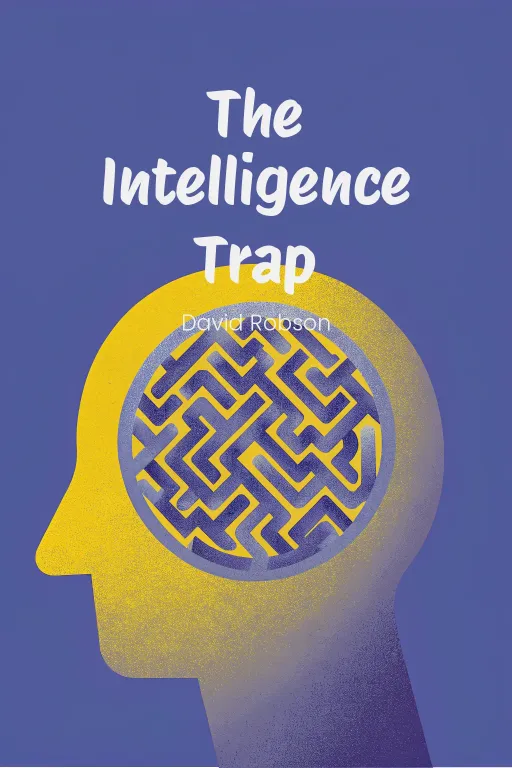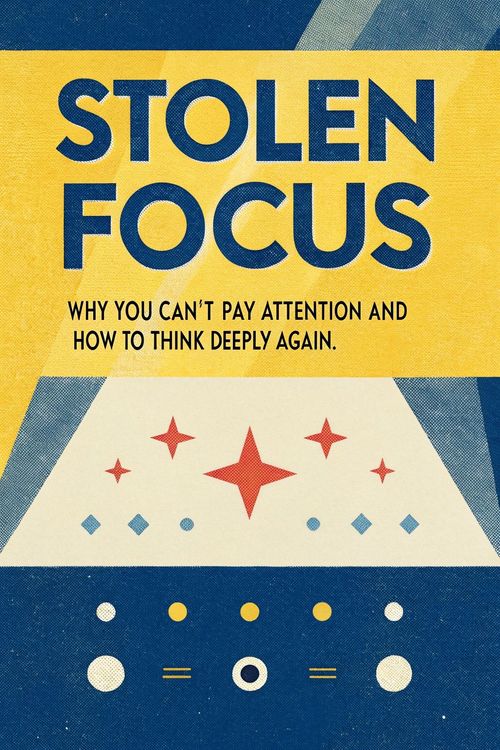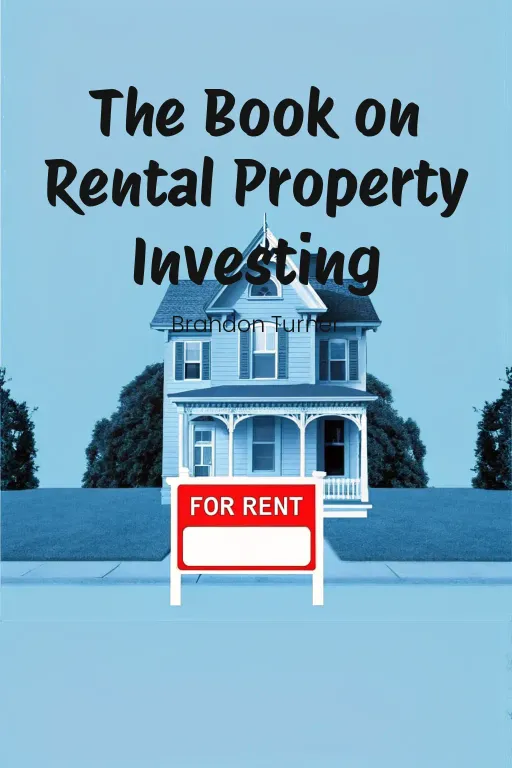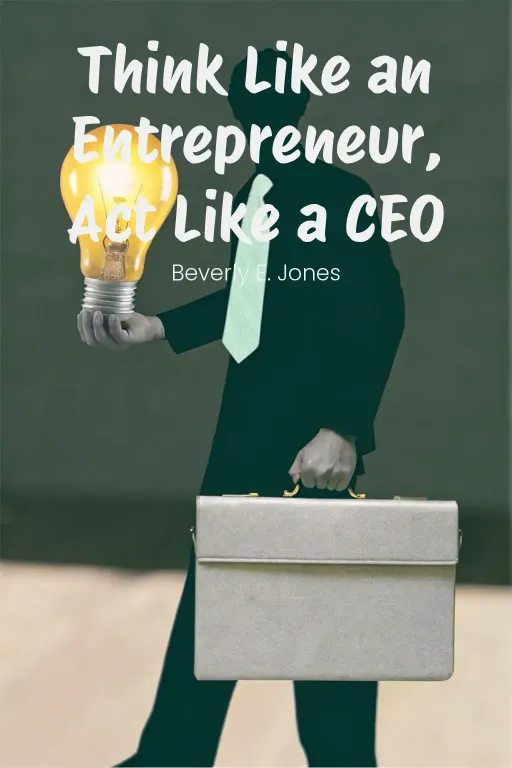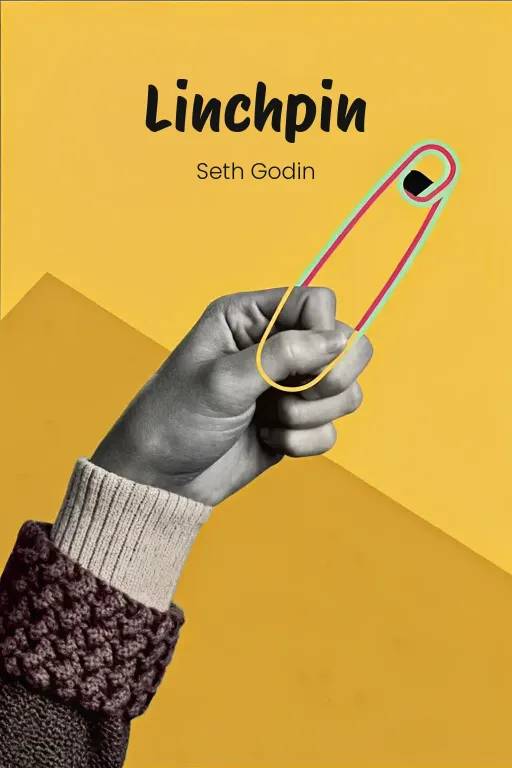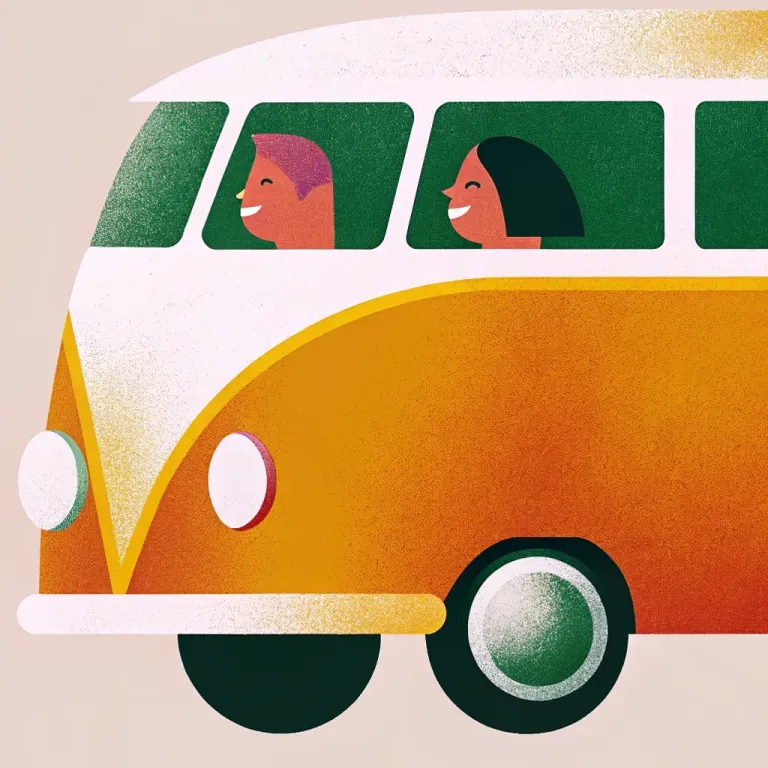
Drive Your Life: Vision, Purpose, & Positive Fuel
Podcast by Beta You with Alex and Michelle
10 Rules to Fuel Your Life, Work, and Team with Positive Energy
Drive Your Life: Vision, Purpose, & Positive Fuel
Part 1
Alex: Hey everyone, welcome to the show! Today, we're jumping into a story that could “really” change things for you. Have you ever felt like you’re just...stuck? Like your relationships are tough, work feels pointless, and you can't find any motivation? Michelle: Ugh, you mean like being stuck on a bus that breaks down in the middle of nowhere? No AC, screaming kids... Yeah, that feeling. We know it well. Alex: Right! Well, today's book, "The Energy Bus" by Jon Gordon, is about grabbing the wheel and getting back in control – though, maybe not of the screaming kids. It's about a guy named George whose life gets flipped around when he meets this super-inspiring bus driver named Joy. She gives him 10 rules that totally transform how he sees things, helping him switch from being negative and blaming everyone to being positive and driven. It changes everything for him, both at work and at home. Michelle: A self-help bus tour, huh? Alright, Alex, I’m intrigued. Where are we stopping along the way? Alex: Good question, Michelle! Today, we're focusing on three big ideas from the book. First, we'll talk about taking responsibility. Because, “really”, things won't get better until you do. Second, we're going to look at creating a clear vision. Think of it as your roadmap, pointing you towards where you want to go. And third, we will learn how positivity fuels you to keep moving forward, even when things get rough. Michelle: So, responsibility, vision, and positivity... Sounds like we're building a life road trip playlist. Alright, let's fire up the engine and see where this ride takes us.
Taking Responsibility
Part 2
Alex: Okay, so we're talking about “grabbing the wheel,” right? Let's start with the real foundation of that: taking responsibility. It sounds simple, but it's so powerful. The Energy Bus kicks off when George realizes his misery comes from just letting life happen to him. He’s been a passenger in his own life, letting outside stuff dictate everything. Michelle: Right, and Joy metaphorically hands him the keys. "Congrats, George, you're in charge of your mess now." But Alex, let's be real. “Taking responsibility” sounds great, but it's hard. What does it even look like day-to-day? Alex: It starts with being honest with yourself. George had to admit that his unhappiness with his career, marriage, everything, wasn't just the world being against him. Sure, life throws curveballs, but his responses were keeping him stuck. It's switching from "my team sucks" or "my partner doesn't get me" to "how am I contributing to this?" Michelle: So, it's the difference between saying, "My life's a disaster" and "I keep tripping." I get it. But isn't all this pressure kind of... heavy? You're telling people their problems are their own fault? Alex: Not really. It’s not about fault, it’s about taking your power back. Blame gets you nowhere; responsibility empowers you. Think of it like this: if George's flat tire is his life falling apart, responsibility is realizing, "Okay, nobody's coming to fix this. I need to change it myself." He didn't cause the flat, but he can fix it and move on. Michelle: Okay, I see. So life becomes a DIY project. You’ve got the tools, you just have to use them. Alright, I’m in. How does George start fixing this metaphorical flat? Alex: He starts small. Joy talks about the "ripple effect of choices." Every decision, from how you show up at work to how you handle frustration, creates ripples that shape your environment. George had to ask himself: am I adding to the problem, or the solution? Michelle: And let me guess—he was creating a tsunami of bad vibes, not ripples? Alex: Exactly! But once he realized that, he started making small, thoughtful changes. He stopped focusing on what others were doing wrong and started asking, "Did I bring my best self today?" That question forced him to be proactive instead of reactive. Michelle: Proactive, huh? So instead of complaining about his team, he actually, you know, engaged with them? Alex: Yes! And it wasn't just faking a smile. He held himself accountable for his daily actions. When conflicts came up, he didn’t ignore them. He leaned into what I call "confrontation and repair." For example, he apologized to his team—not just to smooth things over, but to genuinely own the leadership mistakes he’d made. Michelle: Hold on. An apology? At work? Was that... effective? Or just awkward? Alex: Surprisingly effective! Vulnerability builds trust. George owning his mistakes showed his team he was serious about changing things. It signaled, "I'm not blaming you anymore; let's fix this together." That encouraged the team to reflect on their behavior, and the whole dynamic shifted towards teamwork. Michelle: Wow. So being honest about your flaws helps not just you, but everyone around you. Fancy that. Okay, but what if you aren't the problem? What if George had a coworker who, like, sucked all the joy out of the room? How does he take responsibility there without getting drained? Alex: Great question! That's where the "small circle of control" comes in. George can't change the energy vampire—that's out of his hands. But, he can control how he reacts. He sets boundaries. He limits interactions when he can and focuses on managing his own energy. Michelle: Smart. Like, prune the weeds in your garden so they don’t kill your prize-winning tomatoes, right? Alex: Exactly! And that ties into another lesson, Joy compares taking responsibility to working in a garden. Everything you do, or don't do, has a direct impact on your harvest. George realized that the issues he ignored, like problems with his team, only got worse, creating a toxic atmosphere. Michelle: Alright, so he finally started weeding. But here's another question: doesn’t taking responsibility mean facing your past? George can't just plant new seeds and ignore the problems he already created, can he? Alex: Definitely. That’s why accountability is hard—it requires difficult conversations and fixing things. George didn’t just become better overnight; he dealt with the guilt of his past mistakes. With his wife, he admitted how his negativity had hurt their marriage and worked on fixing it, through actions, not just words. Michelle: Sounds rough. But here's the big question: was it worth it? Alex: Absolutely. By owning his flaws, George didn’t just improve his career or his marriage—he completely changed how he saw challenges. He stopped seeing obstacles as things happening to him and started seeing them as chances to grow. That became the basis for everything—his vision, his purpose, his positive attitude. Michelle: I get it. So responsibility isn't a one-time thing, it's the engine that drives the whole thing, right? Without it, you're stuck. Alex: Precisely. Taking responsibility kicks everything off. Own your life, and you can plan where you're going and navigate challenges with purpose. That's why it's the first principle, it's the foundation for everything else.
Vision and Purpose
Part 3
Alex: Once you've taken responsibility, the next thing you need is a clear direction. I mean, Michelle, what's the point of getting everything ready if you don't even know where you're going? Michelle: So, vision and purpose, that's your GPS, huh? Keeps you from ending up in a ditch. But seriously, why is having a vision such a big deal? Lots of people seem to do okay without one, right? Alex: Well, that's where people get confused. You might get somewhere without a vision, sure. But will you end up where you want to be? A vision acts like your compass, lining up what you do every day with whatever bigger goal you have. It's like the difference between just driving around and actually heading somewhere specific. Michelle: Okay, but what if your vision is kinda...fuzzy? Like, instead of aiming for a fulfilling career, you're just running around saying, "I wanna be rich!" How do you make it real? Alex: Exactly, you need to be specific. In The Energy Bus, George figures this out fast. He just wanted to survive—get through it without falling apart. But Joy tells him, that’s not a vision. It's just survival. A real vision is something you can act on. So instead of saying, "be better at work”, you could say, "Lead a team that's positive and collaborates.” That’s a clearer picture of what you’re aiming for. Michelle: So, first, no more vague hopes. Focus on real, achievable ambitions. But how do you keep it from being too rigid? Things change. Doesn't a fixed vision mean you might end up somewhere you don't even want to be anymore? Alex: That's why you have to keep checking and changing your vision as you go. As you evolve, so do your goals. George starts wanting to fix his problems, but as he grows, he begins to want to create a really great workplace. He lets his vision grow along with his experience. Michelle: So, think of your vision as a draft, not the final version. Got it. But still, how do you not lose track of it when you're just trying to get through the day? Alex: That’s where your purpose comes in. Purpose is the fuel behind the vision. It keeps you going when things get hard. A teacher, for example, might have a vision to help her students reach their potential. In that case, her purpose might be a deep belief in building confidence. That’s what keeps her going even on the worst days. Michelle: Let me jump in, here. Do you think people confuse vision and purpose? Are they different sides of the same thing, or are they totally separate ideas? Alex: Separate, but connected. Vision is where you want to go. Purpose is why you want to go there. George’s vision was to transform a bad workplace into a good one. But his purpose was more than just success, he wanted to improve his life and the lives of the people around him. When they line up, it creates a really strong motivation. Michelle: But it's not always so simple. What if your vision feels so huge that your purpose isn't enough to keep you going? People get discouraged, right? What happens then? Alex: The book makes an interesting point: you often see your vision most clearly when things are hard. George’s life was a mess, and that made him look inward and clarify what really mattered. Challenges can really highlight what you're working towards and why. And when your purpose is strong, you'll find a way to adapt instead of giving up. Michelle: So, chaos can be your wake-up call. But I want to talk about something else from the book: sharing your vision. Isn’t it risky to tell everyone your goals? What if they don’t believe in you, or even try to stop you? Alex: Being vulnerable is scary. But sharing can actually make your vision stronger. When George shared his vision of positivity and success with his team, it made him feel more accountable and encouraged collaboration. It made his team active participants instead of just watching him. Michelle: So instead of keeping your plans secret, you tell people and get them to help you. It’s like team-building disguised as vulnerability. But how do you balance being open with being realistic? Surely, you can’t trust everyone. Alex: Exactly, you have to be careful. You share it with people who are also working towards it. Remember the book’s environmental pioneers? They had a vision for a sustainable planet, and that was a call to action for the whole community. By making their vision clear, they brought people together to solve problems like pollution and deforestation. They chose their partners carefully, and it really paid off. Michelle: And the genius of their approach was that they didn’t just react to problems; they looked ahead to what a better world could be. That’s what made people listen. Alex: Absolutely. Their vision and purpose united them, and that proves that when you combine clarity with intention, you can have a real impact, whether as an individual or as an entire group. Michelle: Okay, Alex, I’m sold. Vision isn’t just a dream—it’s a strategy. Define it clearly, link it with a strong ‘why’, stay flexible, and maybe even share it with the right people. Makes sense. Alex: Exactly. Vision and purpose aren’t just nice to have, they’re essential. Without them, George’s story would just be about fixing a broken bus. But with them, he wasn’t just fixing the bus—he was building a whole new path forward.
Positive Energy as Fuel
Part 4
Alex: So, once you've got that clear vision, the real trick is fueling the journey, right? Because knowing where you want to go is one thing, but keeping that fire lit, especially when things get tough, that’s the challenge. Michelle: Exactly. And we're talking energy here – specifically, “positive energy," as Jon Gordon puts it. Now, Alex, let’s be honest. That sounds lovely in theory, but in a world of deadlines, setbacks, and people who seem determined to spread misery, positivity can feel… well, impossible. Like trying to meditate during rush hour. Alex: Right, Michelle, and that’s why it's not about pretending life's all sunshine. It's about building habits that generate positive energy, even when things are tough. It's not denying the negativity; it's about how you reframe it and navigate it, so it doesn’t completely knock you off course. Michelle: Okay, so elevator pitch time. Why is this positive energy so crucial? Isn't plain old determination enough to get the job done? Alex: Determination is definitely important, but it’s not sustainable on its own. Gordon uses this great metaphor in The Energy Bus: a bus can't run without fuel, and neither can individuals, teams, or relationships without positivity. It’s not just some fluffy pep talk; it’s the force that builds resilience, sparks creativity, strengthens bonds, and keeps you moving despite obstacles. Michelle: Alright, but how do we harness this force? Because if there’s one thing I've learned, it’s that telling someone to "stay positive" is about as useful as telling them to "calm down" when they're stressed. Alex: Exactly, which is why the book doesn't just say "be positive." It offers practical methods. Take gratitude, for example. The main character, George, starts making gratitude a daily habit, shifting his focus from what's missing or wrong to what he has and appreciates. That changes his mindset to focus on possibilities, and that motivates him. Michelle: Gratitude, huh? So instead of "I hate my job," it's more like, "At least my boss isn't breathing down my neck every five minutes”? Alex: Well, yes, but it goes deeper. It's really about changing the way you see your life. For George, that meant actually sitting down and writing three things he was thankful for every day. This kind of rewires your brain to notice the positives more often and creates contentment. You’re not ignoring problems, but you’re balancing them with an appreciation for what's going right. Michelle: Okay, gratitude I can get behind. But what about the social side of energy? Because, let’s face it, sometimes the people around you are the ones draining you faster than a leaky faucet. Alex: Big time. Relationships are a huge energy source, both positive and negative. George learns to think of people as either "energy givers" or "energy drainers." Supportive, encouraging relationships lift you up, while constant negativity pulls you down. The key is spending more time with the givers and, yeah, setting boundaries with the drainers. Michelle: Boundaries? So, telling that coworker who thrives on drama, "Hey, I need you to keep your soap opera to yourself"? Alex: Honestly, yes. It's about protecting your energy so you can focus on what matters. But it’s not just avoidance, it’s about actively fostering positive interactions too. George doesn't just avoid negativity – he actively creates an encouraging work environment. He starts celebrating his team’s successes, giving credit where it's due, and offering supportive words. Suddenly, his workplace feels less toxic and way more productive. Michelle: So it's less about cutting out the "grumps" and more about leading by example, showing others how to approach things with optimism and teamwork. I like that – feels less confrontational. Alex: Exactly. It's the ripple effect of positivity. When George starts focusing on his own energy, it inspires his team to do the same, creating a culture of uplift. And that's not just some feel-good idea; it’s backed by research. Positivity spreads through groups. When one person radiates enthusiasm, it can boost the mood and productivity of the entire team. Michelle: Okay, so gratitude and energy-boosting relationships – good. But life isn’t all sunshine. What about those inevitable speed bumps? Positivity's great, but it doesn't magically make challenges disappear. Alex: That’s where reframing comes in. George learns to see challenges not as roadblocks but as opportunities for growth. Instead of letting setbacks drain his energy, he shifts his perspective, asking, "What can I learn from this? How can I grow?" So, when his boss criticizes him, instead of getting frustrated, George sees it as a chance to step up and become a better leader. Michelle: Interesting. So a tough situation becomes less like a dead end and more like a detour that might just lead to a better view? Alex: Exactly! Reframing negativity is about maintaining momentum. George uses things like positive self-talk – reminding himself of his skills and what he's capable of – to keep pushing forward. It’s not about ignoring the difficulties, but about tackling them with hope and a sense of curiosity. Michelle: Alright, I’m on board with reframing. But how do you keep this positivity alive long-term? Because, let’s face facts, good habits are easy to start but hard to maintain. Alex: That’s when embedding rituals becomes key. George creates daily rituals that boost his positive energy. For example, he starts each morning with affirmations like, "Today, I will focus on solutions," setting the tone for the day. He combines these practices with physical activity, like taking gratitude walks, to engage both his mind and body in creating a positive outlook. Michelle: Affirmations and walks – not complicated, but surprisingly effective, I bet. Okay, I get the rituals, but can we circle back to something here? The idea that positivity thrives during adversity. Isn’t that… a contradiction? Alex: It might seem that way, but George’s story shows something different. Often, it’s during the hardest times that the seeds of positivity are planted. George hits a low point – at work, in his marriage, in his own confidence. That adversity forces him to confront the negativity draining his life and make real changes. His struggles highlight what he values most and motivate him to protect those things. Michelle: Adversity as a magnifying glass. I like that. It takes some of the sting out of challenges because you start seeing them as opportunities for realignment, not just punishment from the universe. Alex: Exactly. Positive energy often comes out stronger because of adversity. It's like a muscle you build through resistance. And once George starts flexing that muscle, it transforms his outlook, his relationships, and his entire work culture. Michelle: So you’re saying that positivity isn't passive. It's not just something you feel – it's something you choose and cultivate every day, even – or especially – when things aren’t going your way. Alex: Precisely. Positive energy is an active commitment to building momentum, fostering resilience, and creating an environment where success can “really” flourish. And when you practice it intentionally, it doesn't just fuel your own journey; it lifts up everyone around you along the way.
Conclusion
Part 5
Alex: So, to wrap things up, “The Energy Bus” is really a roadmap, wouldn't you say, for transforming your life, both at work and at home. It all starts with taking ownership—owning your actions, your thoughts, and, well, your life in general. Then, it's about figuring out where you want to go and connecting that vision to a real sense of purpose. And finally, powering that journey with positive energy—that's what keeps you going, helps you bounce back from setbacks, and even inspire others along the way. Michelle: Right, I get it. And you know, what really struck me is that this isn’t just some fluffy, "think happy thoughts" kind of thing. It's about consciously making choices—setting limits, appreciating what you have, looking at problems differently—to actually build momentum. Positivity isn’t just a mood; it’s a skill. Alex: Precisely. And look, here's the big idea for our listeners: You're the driver of your own energy bus. The road's not always going to be easy, but you get to decide how you handle it. Take charge, set your course, and fill up with positivity to make it a journey you actually enjoy. Michelle: Yeah, and don’t forget—everything you do affects other people. Whether it’s at work, with your family, or just in your own development, the energy you bring to the table matters. So, what kind of impact do you want to have? That’s the question you need to ask yourself. Alex: I agree. Well, that's all the time we have for today. Thanks for tuning in. Until next time!


